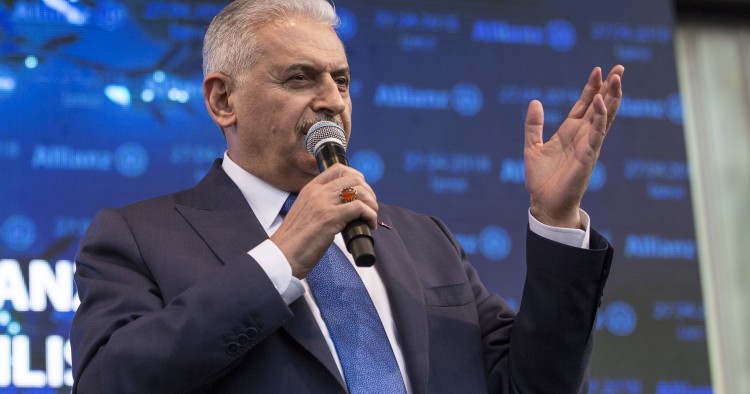Over the past decade, Turkey has transformed in many ways. Ankara’s once cozy relationship with the West has been traded for one more aligned with Moscow and Tehran, with increasing engagement in such far-away places as Senegal and Sudan. Commentators have said a great deal about what this means for the future of the Turkish Republic. In seemingly every way imaginable, President Recep Tayyip Erdogan has set out to transform his country. He has met considerable success in the insurance industry, using it as a tool to drive both social and economic changes.
Consumer insurance
This success is most clearly expressed in Turkey’s motor insurance segment, which the Erdogan administration has pushed to embrace Islamic insurance products, or takaful. In fact, it is so important that the state has included the growth of takaful as fodder in its advertising for foreign investment. In takaful, and especially motor takaful, Turkey has achieved incredible success. A number of firms that did not exist as little as five years ago are now major players in the Turkish motor insurance market. According to the Turkish Insurance Association, motor insurance premiums rose by nearly 33% from July 1, 2016 to June 30, 2018 – a rise largely attributed to takaful.
This is particularly intriguing given that, during the same time period, legacy insurers saw their market share plummet. Allianz and AXA, formerly major players in the market, saw losses of more than 1.5 billion lira ($288.5 million). The strong performance of takaful firms not only matched these losses, but surpassed them. Furthermore, one of the few legacy insurers to see substantial growth, Halk Sigorta, a major insurer with strong ties to the Erdogan administration, did so largely by adopting takaful practices.
Of course, motor insurance is but one segment of the market. However, similar trends, albeit less advanced, can be seen in health insurance as well. Two years ago, no real takaful entities existed. Today, a number of mid-market insurers in Turkey are based on takaful. While motor takaful is nothing new in a middle-income country, successful implementation of health takaful without heavy subsidies from the state (such as in the countries of the Gulf Cooperation Council) would be an impressive achievement worth emulating throughout the Muslim world.
From a political perspective, encouraging takaful also has the advantage of demonstrating that President Erdogan remains connected with his constituents’ Islamic roots. Much of his domestic and foreign policy agenda hinges on proving that he is a leader, if not the leader, of the Sunni Islamic world. Building a working takaful-backed economy, especially one without heavy state subsidies, would reinforce the primacy of Turkish views on Islamic (and secular) matters.
Business insurance
Consumer takaful is not the only area where the Turkish government intends to use insurance to transform society. In recent weeks the Turkish authorities have taken steps to establish a new reinsurance firm that would aim to increase investment in sectors that conventional insurers view as high risk. Turkey’s insurers have traditionally balked at covering such investment because obtaining reinsurance to mitigate the required capital coverage was prohibitively expensive. Doing so required maintaining considerably more money in reserve as these industries are more likely to have claims filed, and those claims are more likely to have higher price tags. The legislation authorizing the new reinsurer specified the sectors that could be covered, namely chemical, furniture, and textile production.
Turkish efforts to drive foreign direct investment are centered largely on promoting industrial investment away from major cities, and these three industries have considerable promise to do precisely that. Especially in Central Anatolia, home to much of Erdogan’s support, this type of reinsurance has strong potential to reassure underwriters, possibly spurring new investment and creating economic opportunities. Put another way, this reinsurance plan would help to create jobs and prosperity for those areas of Turkey where President Erdogan draws the majority of his support. Such coverage is especially helpful for small businesses, which are a major driver of economic activity in these regions. Finally, given current data about where takaful has been most readily adopted by the population, this reinsurance law has serious potential to help drive further success for health and motor takaful companies. After all, if the more conservative areas see a greater increase in earnings, they are more likely to purchase more takaful to protect their assets and health.
Implications on policy and business
It is increasingly clear that Turkey wishes to prove that a country driven by the Justice and Development Party’s interpretation of Muslim ideals can be a significant player on the international political and economic stages. It is not surprising that Islamic financial ideas are crucial to this endeavor. It is likely, thus, that Turkey will continue to approach issues independently, viewing itself as a leader. That portrayal will soon find its way to Islamic financial products, including takaful, as Ankara continues to strive to offer its own interpretations of Islamic practices.
When it does, Turkey will likely portray its methods as best practices. There is already confusion over the validity of different takaful contracts and it likely that a Turkish option will only further cloud the field. That said, Turkey is betting that its solutions, namely growing and empowering a middle class through strong moves with religious backing, could be the key to set it apart from the competition.
Ali Balikci/Anadolu Agency/Getty Images
The Middle East Institute (MEI) is an independent, non-partisan, non-for-profit, educational organization. It does not engage in advocacy and its scholars’ opinions are their own. MEI welcomes financial donations, but retains sole editorial control over its work and its publications reflect only the authors’ views. For a listing of MEI donors, please click here.













